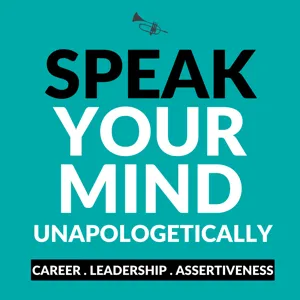Podcast Summary
The Humanization of Brands and Our Emotional Connection: Research suggests our attachment to humanized brands may stem from human need for affection and love, and the potential implications for our relationship with AI.
Our attachment to brands and their humanized logos may be rooted in the human need for affection and love. The use of fictional human characters by brands is not a new phenomenon, with examples ranging from Ronald McDonald to Johnnie Walker. This humanization of brands may serve to create a deeper emotional connection between consumers and the products they buy. The question then arises, if we can fall in love with these humanized brands, could we also fall in love with AI as it becomes more human-like? To explore this further, I'm joined by Aaron Ahuvia, a professor of marketing at the University of Michigan, Dearborn, and an expert on brand love. Ahuvia's research sheds light on the psychological reasons behind our attachment to brands and the potential implications for our relationship with AI. Stay tuned for our conversation on the psychology of love and our behaviors towards objects.
Our brains attribute human-like characteristics to nonhuman entities: Anthropomorphic thinking influences our behavior towards objects and natural phenomena, leading us to interact with them as if they were people.
Our brains have a tendency to attribute human-like characteristics, emotions, and intentions to nonhuman entities, a phenomenon known as anthropomorphic thinking. This can lead us to interact with objects and even natural phenomena as if they were people. A study conducted by Christophe Bartnik of the University of Canterbury demonstrated this when participants were asked to turn off a talking plastic cat. Despite knowing it was just a toy, some participants hesitated and even argued with the cat before eventually turning it off. This shows how deeply ingrained anthropomorphic thinking is in our minds and how it can influence our behavior towards nonhuman entities. Understanding this phenomenon can help us appreciate the complex ways our brains make sense of the world around us.
Assigning human-like characteristics to products can impact consumer behavior: Consumers subconsciously or consciously form emotional connections with products given human-like characteristics, influencing their behavior and preferences.
Assigning human-like characteristics to products can significantly impact consumer behavior. In a study, participants interacted with two different slot machines – one that looked like a normal machine and another with a few changes resembling a human face. The results showed that consumers with high social dominance wanted to play the human-like slot machine, believing they could manipulate it, while those with low social dominance avoided it due to past experiences of being taken advantage of. Similar findings were observed in a study involving cookies – people ate more of the cookies that looked like human faces because they felt the cookies were asking to be eaten. These effects often occur at a subconscious level, but sometimes consumers become aware of them. A study on wine bottles found that consumers subconsciously saw smaller bottles as children and larger bottles as adults when referred to as a product family. Using humanizing language and imagery in marketing can create an emotional connection between consumers and products. A recent study also highlighted the importance of language in product descriptions, showing that person-related features in advertisements can increase consumer preference for the brand.
Using human-like attributes for products increases engagement: Anthropomorphism in advertising can lead to stronger consumer connections, but it's crucial to balance humanizing products with ensuring functionality to avoid negative experiences.
Using human-like attributes to describe products can lead to increased engagement and clicks on ads, as customers experience anthropomorphism and blur the lines between human and product. For example, instead of saying a product is sturdy, it might be more effective to say it's reliable, or instead of durable, say it's tough. This raises questions about the future of AI and human-machine relationships. As AI platforms become more human-like, could we form affection or even love for them? Brands have already started using anthropomorphism to help consumers form relationships with their products, as there's a positivity bias towards people and objects that are unconsciously classified as human. However, if a product doesn't function as expected and is anthropomorphized, the negative response can be much stronger than if it's just seen as an inert object. Therefore, it's crucial to strike a balance between humanizing products and ensuring they function effectively to avoid negative customer experiences.
The Power of Love in Branding: Love is a fundamental force driving cooperation and teamwork in both nature and human society. Brands can tap into this human need for connection to build stronger relationships with their customers.
Human connection plays a significant role in brand appeal and even evolution. Brands use human characters to increase affection and likability, but this increased affection comes with heightened expectations. Love, as defined by evolutionary psychologist Aaron Sell, is a motivation that allows animals to take care of their offspring and mate, leading to better survival chances. In humans, love goes beyond this and forms mutual aid societies, enabling effective teamwork and collaboration, which is our biggest evolutionary advantage. Love is not unique to humans, but our ability to love extends beyond just caring for offspring. Love is not an emotion itself, but it can evoke a wide range of emotions. Essentially, love is a fundamental force driving cooperation and teamwork, both in nature and in human society. Brands can tap into this human need for connection to build stronger relationships with their customers.
Love for objects expands self-concept: Love for people and objects exists, but they serve different purposes. People love based on relationships and shared experiences, while objects bring joy, comfort, and identity.
Love is a complex emotion that goes beyond just feeling angry or happy. According to research, falling in love can expand our self-concept and change the way we view ourselves. However, the ability to love extends beyond just people. While our brains are not naturally wired to love objects in the same way we love people, people still report feeling genuine love for things. Neuroscience studies show similarities in brain responses when people express love for objects and people. So, the capacity to love things and people exists, but it serves different purposes. Love for people is rooted in relationships and shared experiences, while love for objects can bring joy, comfort, and even a sense of identity.
Our brains treat loved objects like people through anthropomorphism, connection, or identity: Our brains can love objects, but our love for them is typically less intense than for people. Advancements in AI may blur the lines between love and brand affection.
Our brains can treat objects as if they were people when we love them, and this happens through anthropomorphism, connection to other people, or connection to our own identity. Research shows that our subconscious responses, like muscle movements around the eyes, can indicate affection towards objects, especially brands. However, our brains can distinguish between loving objects and loving people. With the advancement of AI, some objects are becoming more human-like, able to communicate, reciprocate, and care, blurring the lines between love and brand affection. Our brains, which evolved over millions of years, have simple mechanisms for distinguishing people from objects. However, as objects become more human-like, our brains may struggle to differentiate, potentially leading to more intense relationships with objects. While we do love objects and activities, our love for them is typically less intense than our love for people, and often reflects our love for another person. However, with the advancement of AI and more sophisticated object interactions, this dynamic may change.
The ease of AI relationships may lead to a loss of human connection: AI relationships may replace human ones, potentially causing us to lose important social skills and emotional intelligence.
While relationships with artificial intelligence (AI) may be convenient and easy, they may not provide the depth and richness of human relationships. The speaker expresses concern that people might start substituting these relationships for human ones, leading to a loss of important social skills and emotional intelligence. The speaker also highlights how humans often opt for the easy choice, and AI relationships may be even easier than human ones. This could potentially result in people becoming too reliant on AI for companionship and support. The speaker emphasizes that this is not a prediction, but a possibility based on research. Brands use human-style characters in their marketing because they evoke emotions and create a connection, which is what people want in relationships, both human and AI. The speaker encourages listeners to be aware of this trend and consider the potential consequences. The speaker also encourages listeners to check out Aaron's book, "The Things We Love," for more information on this topic.
Sign up for the Nudge newsletter for exclusive access and personal connection: Signing up for the Nudge newsletter grants access to new episodes, weekly tips, and a direct line to host Phil Agnew for deeper engagement
Learning from today's episode of Nudge is that by signing up for the newsletter on nudgepodcast.com, you'll gain exclusive access to new episodes and weekly tips, as well as my email address for direct communication. This not only keeps you updated on the latest content but also provides a personal connection. So, if you want to deepen your engagement with the Nudge podcast and have the opportunity to interact with your host, Phil Agnew, sign up for the newsletter today. You can find the option in the menu on the website or search for Phil Agnew on Twitter and LinkedIn to get in touch. Stay tuned for the next episode of Nudge, and as always, feel free to reach out with any questions or comments.






